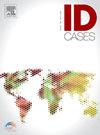Ethical use of AI in infectious diagnostic decision and therapeutic stewardship
IF 1
Q4 INFECTIOUS DISEASES
引用次数: 0
Abstract
Artificial intelligence (AI) is rapidly reshaping healthcare, offering transformative potential in infectious diagnostics and antimicrobial stewardship through enhanced accuracy, efficiency, and predictive capabilities. However, its integration into clinical practice raises significant ethical challenges. These include transparency of decision-making, protection of patient privacy, algorithmic fairness, accountability, and the preservation of human oversight. Global and national bodies have developed guidance to address these concerns: the World Health Organization (WHO) emphasizes autonomy, inclusiveness, and equity; the U.S. Food and Drug Administration (FDA) regulates adaptive AI as medical devices; the European Union AI Act classifies medical AI as “high-risk”; and the Indian Council of Medical Research (ICMR) highlights accountability, data security, and cultural sensitivity. Drawing on these frameworks, this perspective discusses the ethical imperatives of deploying AI responsibly in infectious diagnostic and therapeutic stewardship. Best practices are outlined to ensure that innovation enhances patient trust, safety, and equity while mitigating risks of misuse or bias.
人工智能在传染病诊断决策和治疗管理中的伦理应用
人工智能(AI)正在迅速重塑医疗保健,通过提高准确性、效率和预测能力,在感染诊断和抗菌药物管理方面具有变革性潜力。然而,将其整合到临床实践中会引发重大的伦理挑战。其中包括决策的透明度、患者隐私的保护、算法的公平性、问责制和维护人类监督。全球和国家机构制定了解决这些关切的指导方针:世界卫生组织(世卫组织)强调自主、包容和公平;美国食品和药物管理局(FDA)将自适应人工智能作为医疗设备进行监管;欧盟人工智能法案将医疗人工智能列为“高风险”;印度医学研究委员会(ICMR)强调问责制、数据安全和文化敏感性。利用这些框架,本观点讨论了在传染病诊断和治疗管理中负责任地部署人工智能的伦理必要性。本文概述了最佳实践,以确保创新增强患者的信任、安全和公平,同时减轻滥用或偏见的风险。
本文章由计算机程序翻译,如有差异,请以英文原文为准。
求助全文
约1分钟内获得全文
求助全文

 求助内容:
求助内容: 应助结果提醒方式:
应助结果提醒方式:


